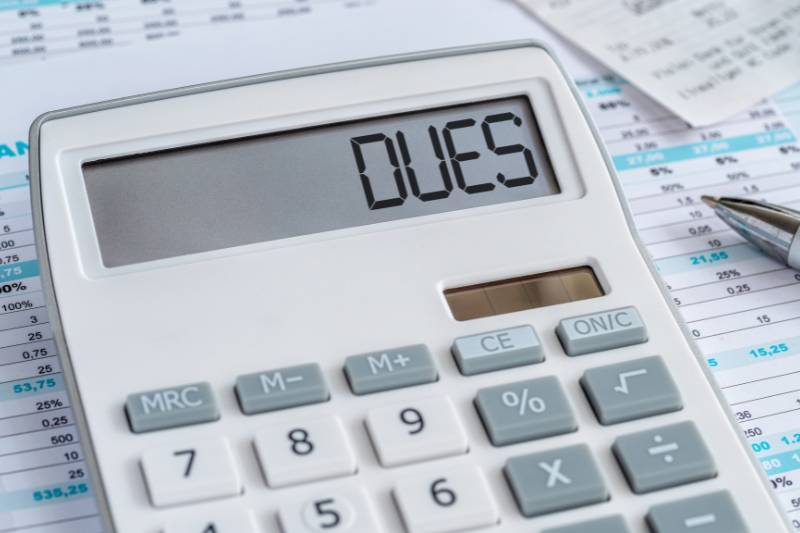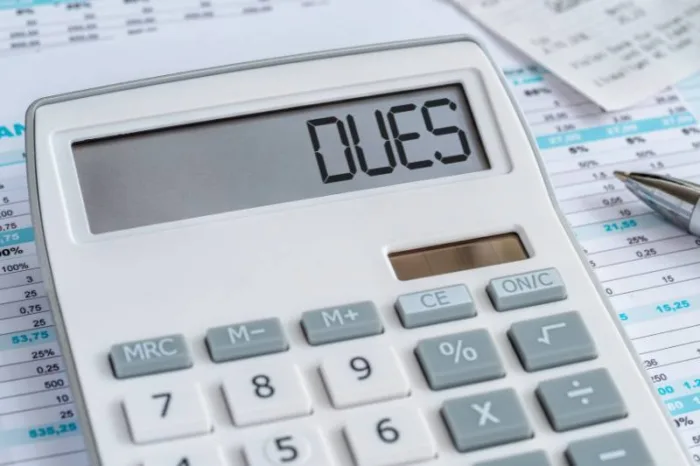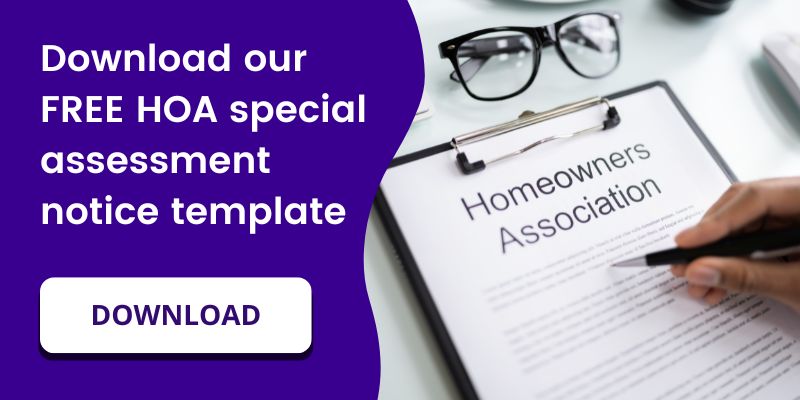Key takeaways
- An HOA special assessment is a fee charged to homeowners to cover unexpected costs the association incurs, such as damage from a natural disaster.
- Special assessments are caused by a lack of reserve funding to cover the costs.
- To reduce the chances of special assessments, associations should budget accordingly, maintain the property, stock a healthy reserve, and plan for the long term.
- Homeowners should budget and save ahead of time for special assessments, review the HOA’s governing documents, and attend meetings to stay informed.

Homeowners living in condos and HOAs may experience special assessments, which can lead to a lot of questions and stress. Meanwhile, board members strive to avoid HOA special assessment costs to avoid burdening homeowners.
For these reasons, we cover HOA special assessments and how to avoid them when possible. We’ll also detail why special assessments occur and how homeowners can prepare for them. Most importantly, you’ll find a free special assessment notice template to use for your community.
This post covers:
- What is an HOA special assessment?
- Why do HOAs charge special assessments?
- How to avoid or reduce special assessments
- Free HOA special assessment notice template
- Tips on special assessments for homeowners
What is an HOA special assessment?
An HOA special assessment is a one-time fee charged to homeowners by the association to cover unexpected expenses, such as repairs from large-scale damages or the addition of new building amenities.
Typically, these unforeseen expenses are not accounted for in the homeowners’ regular monthly fees. Moreover, if the HOA or condo board does not have sufficient reserve funds, they will levy a special assessment fee to cover the costs.
Special assessments may be paid upfront or over a certain period of time. The board determines the method of payment based on numerous factors, including the amount charged to each homeowner or how quickly the project must be completed.
Special assessment tax vs HOA special assessments
It’s important to note the term “special assessment” may also refer to a tax imposed by local governments. In this case, taxpayers pay a special assessment to fund public projects, most commonly construction or maintenance.
Moreover, these taxes are unrelated to HOA or condo special assessments.
Why do HOAs charge special assessments?
As mentioned above, HOAs charge special assessments when they don’t have enough reserve funds in the property’s capital account to cover unexpected expenses.
A reserve fund is money put aside to cover the costs of unplanned repairs and improvements for the community, such as new amenities or building access control systems. This money is different from the operating budget, which is used to cover day-to-day costs like landscaping and utilities.
But how does an HOA have insufficient reserve funds?
Well, HOAs and condos may not have enough reserve funds because of:
- Mismanaged funds. In this case, the association did not correctly plan out the finances needed to cover an upcoming large-scale maintenance project.
- Inadequate insurance. Condos and HOAs may charge a special assessment if their insurance coverage has exclusions, high deductibles, or doesn’t cover enough of the repair costs.
- Extensive costs. If the unexpected damage is significant enough, the cost to repair it could be much greater than what is available in the reserve fund.
Learn how ButterflyMX works:
How to avoid or reduce special assessments
Your association can avoid or reduce special assessments by practicing the following:
- Budgeting properly. Develop a realistic annual budget that accounts for maintenance, improvements, and homeowner contributions. In addition, you should regularly review your budget and adjust it according to your association’s needs and financial situation.
- Keeping up with maintenance. Implement preventative maintenance to lower the risk of unforeseen damage and repair costs.
- Maintaining a healthy reserve. Ensure your HOA contributes regularly to the reserve fund. Approximately 20% to 40% of paid dues should go to the reserve fund to cover unexpected costs and prevent special assessments.
- Planning for the long term. Conduct a reserve study to assess the community’s assets and funds, which are then used to develop a long-term financial plan.
- Communicating with the community. Inform homeowners of the HOA’s financial health, such as reserve fund balances and budgets, to cultivate trust and cooperation.
How much should an HOA have in reserve?
Best practices suggest an HOA should have 70% or more of the total property’s estimated deterioration. Additionally, some states have regulations requiring HOAs to have a minimum reserve fund. An association’s bylaws may also dictate its reserve fund requirement.
Overall, you should consult your association’s state regulations and accountant before making decisions on reserve funds.
Free HOA special assessment notice template
If your association must levy a special assessment, you’ll need a letter to notify homeowners. So, we’ve created a special assessment notice template for you to customize to your needs.
Important note: This special assessment notice template is not designed to be a one-size-fits-all solution. Rather, it’s designed to help you start drafting a notice to your community’s homeowners. Your special assessment letter should comply with your association’s bylaws and state regulations.
Tips on special assessments for homeowners
Paying a special assessment as a homeowner can be frustrating and stressful, especially if you’re unfamiliar with it. Fortunately, we’ve compiled a few tips to help you navigate the situation.
Homeowners can benefit from these special assessment tips:
- Budget and plan. We recommend saving early and putting money aside in the event of a special assessment. That way, if your homeowner’s association levies a special assessment, you’ll be better prepared to pay it off.
- Attend HOA meetings. Special assessments will be discussed at your HOA meetings, so you should attend. Doing so will keep you informed, allow you to ask questions, voice your opinion, and contribute to decision-making.
- Review governing documents. Request a copy of your HOA’s bylaws and Covenants, Conditions, and Restrictions (CC&R). These documents will help you better understand when your HOA can levy a special assessment and what your rights are as a homeowner.
- Request a payment plan. If your special assessment is high and you’re uncomfortable paying it all at once, reach out to the board members to discuss a potential payment plan. Many HOAs are flexible and will work with you to get it paid off in a way both parties are satisfied.
- Seek legal advice (if necessary). If you believe the special assessment is unlawful or unfair, seek legal advice from an attorney specializing in HOA law. They’ll review the situation and provide you with guidance.
Frequently asked questions about HOA special assessments
- Are special assessments legal?
- Is there an HOA special assessment limit?
- Can you refuse to pay a special assessment?
Are special assessments legal?
Yes, HOA special assessments are legal. HOAs have the right to charge special assessments to homeowners, but they must adhere to state and local regulations. Special assessment regulations vary from state to state, so perform thorough research based on where you’re located.
Is there an HOA special assessment limit?
It depends. Some states have implemented regulations on the amount of fees an HOA may collect during a single calendar year, whereas others require the community to vote on whether the special assessment can surpass a certain amount.
At the same time, HOAs and condos may implement limitations themselves when considering a special assessment.
So, before taking action, research your state’s limitations and your community’s bylaws on special assessments.
Can you refuse to pay a special assessment?
Yes, you can refuse to pay a special assessment. If you believe the special assessment is unlawful according to state regulations or the HOA’s governing documents, you may challenge it.
However, if the association followed the necessary requirements to impose the special assessment and you refuse to pay, the HOA has a few ways of reprimanding you.
An HOA may punish you for refusing to pay a special assessment by:
- Charging late fees and fines.
- Preventing you from using community amenities.
- Taking you to small claims court.
- Placing a lien on your property.








